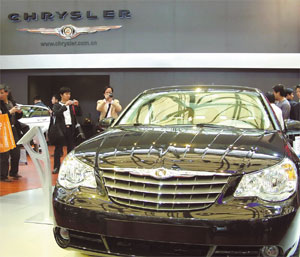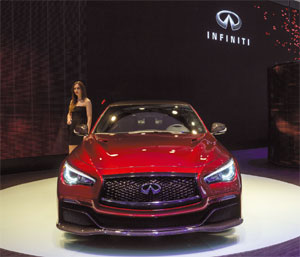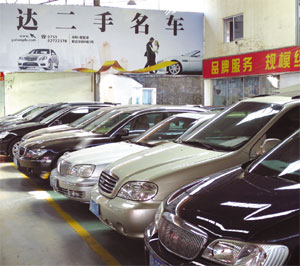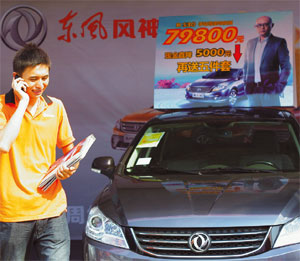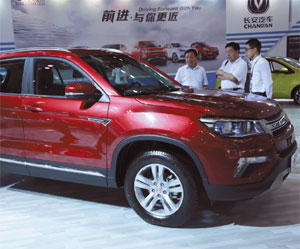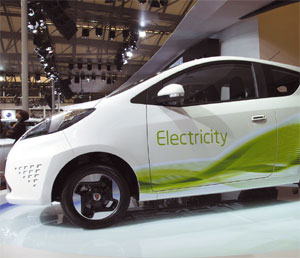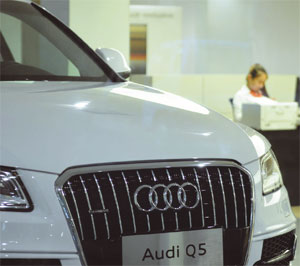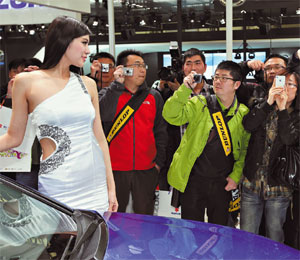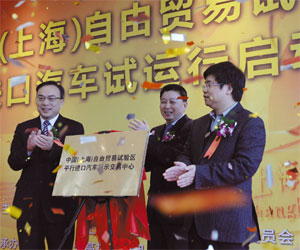Roundup of market highlights
Editor's Note: China is the world's largest and probably fastest-growing auto market, where breaking news happens every day: exciting innovation, history-making moments, far-reaching policies or outrageous scandals. Below are China Daily's senior motoring editors' picks of the top 10 events that shook or shaped China's auto industry since the Beijing auto show in April 2014. They offer readers a quick review of what happened and some insights into what is around the corner.
Govt investigates anti-monopoly acts
The Ministry of Commerce announced in June that it would investigate monopolistic acts in the country's auto market. On Aug 13, the Hubei price bureau fined four BMW dealers 1.62 million yuan ($262,000) for monopolistic acts. Local authorities also fined FAW-VW, Chrysler and a number of Japanese auto parts and bearing suppliers. Chinese regulators denied targeting foreign companies in their anti-monopoly moves. The country's top competition regulator has vowed to strengthen its anti-monopoly efforts to ensure fairer market conditions in 2015.
|
Jing Wei / for China Daily |
Dongfeng releases 1st Infiniti model
Japanese automaker Nissan Motor Co joined with Dongfeng Auto Motor Corp in September to manufacture and market its luxury brand Infiniti in China. Dongfeng Infiniti Motor Co Ltd rolled out its first model, the Q50L, in December. The joint venture is promoting its localization campaign. It plans to raise its annual sales to 100,000 units by 2018, with half of them made in China.
|
Hao Yan / China Daily |
Shenzhen caps new vehicle purchases
On Dec 29, Shenzhen, Guangdong province, announced a cap on the sales of new cars. As of Dec 30, residents are only permitted to acquire license plates for new vehicles either by lottery or auction. According to the policy, 100,000 new car plates will be allocated per year, including 20,000 plates for electric cars. Statistics show that more than 220,000 vehicles were sold in the city in the first half of the year. Other cities with similar policies are Beijing, Shanghai, Guangzhou, Guiyang, Shijiazhuang, Tianjin and Hangzhou.
|
Wen Zi / for China Daily |
Probe of FAW former chairman
In March, it was announced the former chairman of FAW was under investigation for suspected serious violations of the law. FAW's former general manager and deputy general manager were tried and sentenced in 2012. It was announced last year that Dongfeng Motor's vice-president was under investigation, and a total of 55 former management team members in the group were announced to have violated the law, including executives in the passenger car company, Dongfeng Honda joint venture and other subsidy companies.
|
Zhou Jianping / for China Daily |
Carmakers drop 'self-developed'
More than 20 Chinese carmakers announced this month they had officially adopted the expression "Chinese brands" instead of formerly frequently used "self-developed brands", and called on all media to use the new expression in their reports. Chinese carmakers used the phrase "self-developed brands" from 2009 to emphasize the brands were completely owned and developed by themselves. "Chinese brands" is a clearer and more reasonable concept that relates directly with the registered location.
|
Chen Ming / for China Daily |
New-energy cars exempt from tax
To promote new-energy vehicles in China, the State Council announced in July a purchase tax exemption from Sept 1 to the end of 2017. Tax-exempt vehicles include all-electric cars, plug-in hybrids and fuel cell vehicles. Electric-car buyers already receive subsidies from the central government and several local governments. Last year, China sold about 29,000 electric vehicles by November, a sevenfold growth from the same period last year, and about 24,000 plug-in hybrids, 25 times the figure from the same period last year.
|
Zhou Dong Chao / for China Daily |
LeTV developing electric vehicles
LeTV's boss Jia Yueting said on Sina Weibo in early December that his company plans to develop cars, which will make it the first Internet firm to do so. On Jan 20, the company made public its plan on to build smart, Internet-based electric cars. LeTV said it has established a research and development team of about 260 engineers in Silicon Valley in the United States and they have been working on the electric car program for more than a year. The company has released a user interface for cars and said its vehicles would use its self-developed Letv Operating System, or LeOS.
|
Provided to China Daily |
Greater profits given to dealers
Many dealers asked for higher returns or lower sales targets in 2014, and some moves lasted to earlier this year. BMW and its dealers agreed on subsidies totaling 5.1 billion yuan ($830 million). Audi announced a 2.05 billion yuan subsidy plan this year; Daimler gave about 1 billion yuan in subsidies to its dealers in December; and FAW-Toyota increased its commissions. However, many dealers stopped ordering Renault cars in October; and many in January stopped ordering imported Volkswagen and Porsche cars.
|
Long Wei / for China Daily |
Shanghai bans sexy models at auto show
Shanghai auto show organizers said, after listening to exhibitors, they will not allow attractive young women to adorn cars at the show this month. The announcement said auto shows are supposed to give audiences the enjoyment of motoring, and the organizers hoped the exhibitors would promote their products in a healthy and classy way. Companies should focus on product quality and technology. Vulgar activities and those that violate social morality will not be allowed. They called for wider prohibition in other cities.
|
Provided to China Daily |
Shanghai FTZ starts parallel imports
The China (Shanghai) Pilot Free Trade Zone is the first place in China to authorize so-called parallel imports of cars direct from overseas. However, Shanghai government agencies have set strict restrictions on who can join the new system. Some 20 auto dealers who registered in the zone in January are participating, operating alongside the zone's franchised dealers. The new move in Shanghai is expected to pull down prices of the parallel-import cars 15 to 20 percent lower.
|
Lai Xinlin / for China Daily |
(China Daily 04/20/2015 page3)


